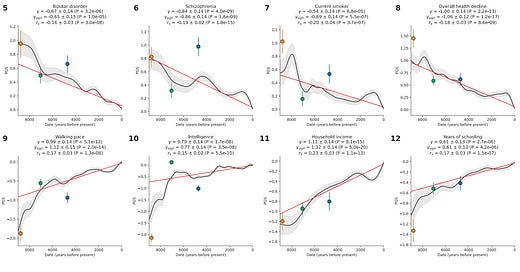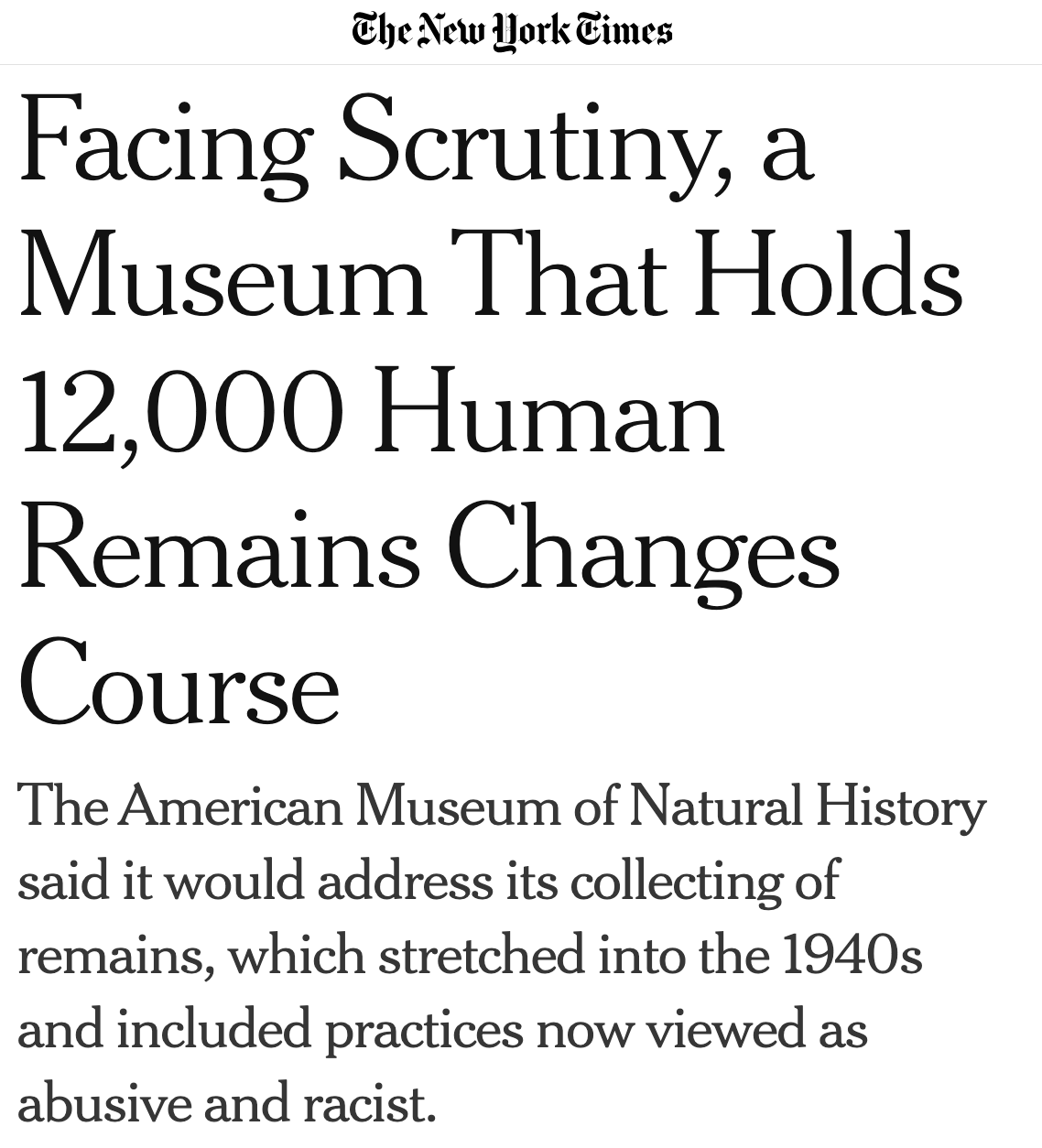David Reich vindicates Cochran & Harpending's "10,000 Year Explosion"
DNA scans of 8,433 ancient West Eurasians from the last 14,000 years finds there has been a lot of evolution since the Ice Age, including for IQ.
Since the late Stephen Jay Gould helped cement the conventional wisdom about human evolution into place, it has been widely assumed by non-experts that Darwinian adaptation stopped tens of thousands of years in the past, with only cultural evolution happening since then. Although Gould was famous for his Theory of Punctuated Equilibrium: sometimes evolution happens at the speed of revolution, he was also famous for claiming that there just hasn’t been enough time for non-superficial human evolution since the races mostly dispersed out of Africa from 50,000 to 100,000 years ago.
Gregory Cochran and Henry Harpending’s 2010 book The 10,000 Year Explosion: How Civilization Accelerated Human Evolution argued instead that more recent inventions like agriculture roughly 10,000 years ago and the peopling of new worlds like the New World would lead to both larger populations (and thus more favorable mutations because of larger sample sizes) and new selection pressures. Hence, human evolution has likely sped up over the last 10,000 or so years.
Today, Harvard superstar geneticist David Reich and team posted an important paper validating the Cochran-Harpending perspective:
Ali Akbari, Alison R. Barton, Steven Gazal, Zheng Li, Mohammadreza Kariminejad, Annabel Perry, Yating Zeng, Alissa Mittnik, Nick Patterson, Matthew Mah, Xiang Zhou, Alkes L. Price, Eric S. Lander, Ron Pinhasi, Nadin Rohland, Swapan Mallick, David Reich
doi: https://doi.org/10.1101/2024.09.14.613021
This article is a preprint and has not been certified by peer review
Abstract
We present a method for detecting evidence of natural selection in ancient DNA time-series data that leverages an opportunity not utilized in previous scans: testing for a consistent trend in allele frequency change over time. By applying this to 8433 West Eurasians who lived over the past 14,000 years and 6510 contemporary people,
This study is basically of whites, broadly defined (and of their ancestors before the current white race emerged from three ancient races: European hunter-gatherers, fertile crescent farmers, and steppe invaders). West Eurasians are what used to be called Caucasians (e.g., Europeans, Levantines, Iranians, Egyptians, etc.)
There’s more published research into modern and ancient DNA from there, and you can do this kind of high-tech grave-robbing of the ancestors of whites with vastly less controversy than that of many other races.
For example, it’s extremely hard to get permission to do ancient DNA analyses of American Indians. Thus, most of what scientists have discovered about the DNA of ancient North American Indians is from Canada or Mexico rather than the U.S.
The media is increasingly up in arms about museums that have in their old collections the skeletons of nonwhites, which is proof of racism.
But nobody much cares about doing scientific research on white skeletons.
At least not until somebody points out that scientists have discovered much less about the genetics of nonwhites, which is also proof of racism.
Should scientists do more or less research on nonwhite DNA?
Well, are the scientists white?
Mostly.
Okay, then, whatever the white scientists do, whether more research or less research, is ipso facto racist.
That’s just how whites are: racist.
The good news is that you can do a lot of genetic research on whites and are unlikely to get much in direct trouble for doing it.
we find an order of magnitude more genome-wide significant signals than previous studies: 347 independent loci with >99% probability of selection.
Previous work showed that classic hard sweeps driving advantageous mutations to fixation have been rare over the broad span of human evolution, but in the last ten millennia, many hundreds of alleles have been affected by strong directional selection. Discoveries include an increase from ~0% to ~20% in 4000 years for the major risk factor for celiac disease at HLA-DQB1; a rise from ~0% to ~8% in 6000 years of blood type B; and fluctuating selection at the TYK2 tuberculosis risk allele rising from ~2% to ~9% from ~5500 to ~3000 years ago before dropping to ~3%.
We identify instances of coordinated selection on alleles affecting the same trait, with the polygenic score today predictive of body fat percentage decreasing by around a standard deviation over ten millennia, consistent with the Thrifty Gene hypothesis that a genetic predisposition to store energy during food scarcity became disadvantageous after farming.
This was a 1962 hypothesis by James Neel to explain the existence of diabetes despite it’s obvious downsides.
We also identify selection for combinations of alleles that are today associated with lighter skin color, lower risk for schizophrenia and bipolar disease, slower health decline, and
Finally, the hottest of hot potatoes:
increased measures related to cognitive performance (scores on intelligence tests, household income, and years of schooling).
It looks like the big selection for intelligence and IQ-related factors like household income and educational attainment (see graph above) was early in the Holocene as agriculture was developing.
The change from hunting and gathering to farming and herding sounds like a really big deal.
Practically everybody in the U.S. is mostly descended from farmers over the last 1000 or more years, including African Americans.
These traits are measured in modern industrialized societies, so what phenotypes were adaptive in the past is unclear. We estimate selection coefficients at 9.9 million variants, enabling study of how Darwinian forces couple to allelic effects and shape the genetic architecture of complex traits.
You can read the full PDF here.
You can read Reich’s 2018 New York Times op-ed “How Genetics Is Changing Our Understanding of ‘Race’” here. You can buy his 2018 book Who We Are and How We Got Here: Ancient DNA and the New Science of the Human Past here.






I see the rate of increase on intelligence was steepest 9,000-6,500 years ago--so agriculture more than widespread literacy seems to have been the biggest trigger. And no sign of a significant post Industrial Revolution decline--although the resolution at this relatively narrow time frame isn't very clear.
Will Stancil must be horrified that he's going to have to start exterminating inferior subspecies of humans!